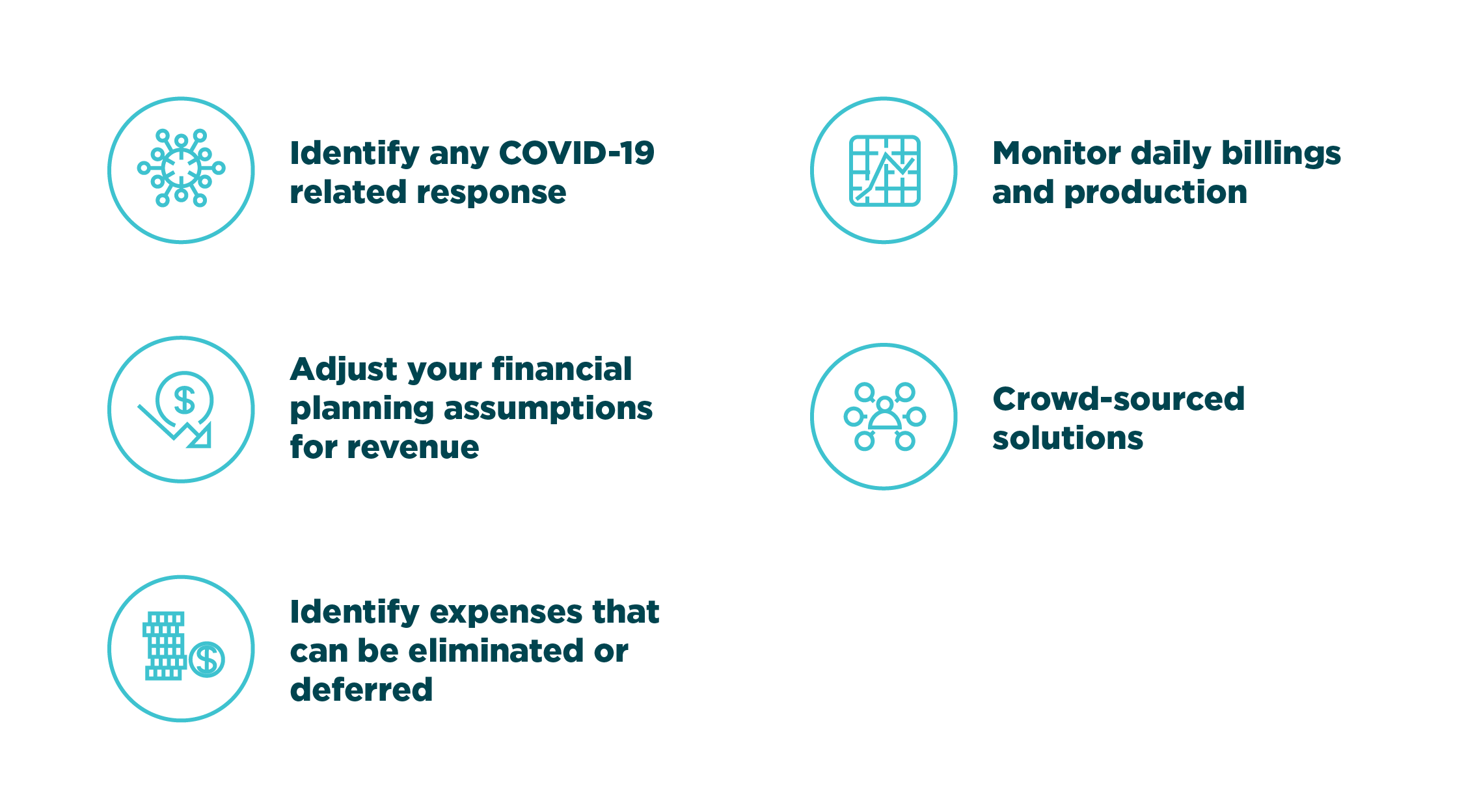
Author:
Jon Davis, Executive Vice President (Email)
How can we diagnose and treat the financial impacts of the COVID-19 pandemic on our water and wastewater utilities? Financial health is a complicated balance between revenues and expenditures. In Spring of 2020, that balance was disrupted to an extent most of us have never seen. After we process the state of current events, we ask one question. How do we cope?
The World Turned Upside Down
No one is sure exactly how these events will impact the financial situation of our water and wastewater utilities. Most do agree that we will see disruptions in revenue. Restaurants, hotels and many other sectors of the economy have all but shut down as we all transition to working from home. While residential water consumption will rise, it will be more than offset by steep declines in commercial and governmental sectors leading to lower billings. In addition, skyrocketing unemployment and an economic downturn could significantly reduce collection rates over several months.
As revenues dip, what will happen with expenses? Construction and contractual services costs may decline as work slows down. Utilities may institute hiring freezes. However, many may not take the step of reducing payroll through layoffs or furloughs and critical supply costs may even increase due to shortages and lack of availability.
We understand that declining revenue and unknown changes in expenses lead to adverse impacts on a utility’s finances, but how do we diagnose the magnitude of the impact and, more importantly, what can we do to treat it?
We Can Beat This By Starting Now
The key to effective diagnosis and treatment is getting ahead of the problems. How much might our revenue drop? How will expenses change? What are the financial implications for our customers? Our employees? Our vendors? Our debt holders?

- Identify any COVID-19 related response: Any pandemic-related response costs should be tracked for possible reimbursement by FEMA or other emergency agencies. These costs may include overtime for essential employees, technology to enable work-from-home, or personal protective equipment and supplies.
- Adjust your financial planning assumptions for revenue:
- A recent National Association of Clean Water Agencies survey suggested members were projecting revenue declines of about 20% on average. Some respondents estimated declines of 30-40%.
- Any standardized assumptions should be tailored to the utility-specific situation. If revenue structures are highly reliant on volumetric rates, declines may be steeper. On the other hand, many retail and wholesale revenues are fixed and do not rely on volumetric usage so some utilities would see less revenue impact.
- Many utilities have suspended customer shutoffs to maintain essential public health benefits of safe drinking water and wastewater services. They may have also suspended late payment penalties and other collections efforts out of sensitivity to customers experiencing economic hardship. Suspended collection activities will impact customer payments and increase the number of accounts in arrears. Utilities should develop a plan to address these issues once the pandemic subsides and people are able to get back to work.
- Identify expenses that can be eliminated or deferred:
- Initially, utilities should review expenses and identify those that are currently being impacted. Is overtime pay likely to increase? Is capital construction likely to slow? These changes should be reflected in their financial plan.
- As the pandemic drags on, utilities should scour operating budgets for costs that can be reduced or deferred to offset revenue declines and preserve debt service coverage and liquidity.
- Monitor daily billings and production: Daily plant flows and billings are leading indicators of financial challenges. Each utility should identify and monitor its leading indicators to get a head start on diagnosing challenges before they arise.
- Crowd-sourced solutions: None of us is as smart as all of us. It is critical at this time that we connect with our colleagues across the industry and share ideas on how to address the challenges we all face together.
Water and wastewater utilities find themselves on the front lines of a public health crisis. At the same time, they also face significant financial challenges and an unclear economic future. Careful planning and a quick response will allow utilities to overcome this pandemic and remain a foundational component of our economic recovery.

![]()